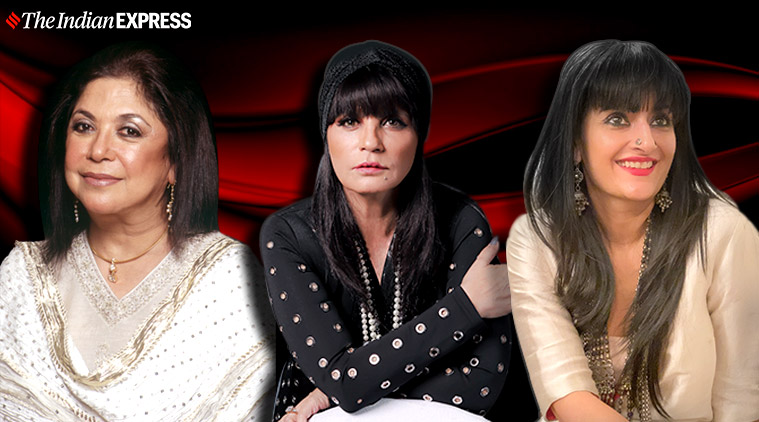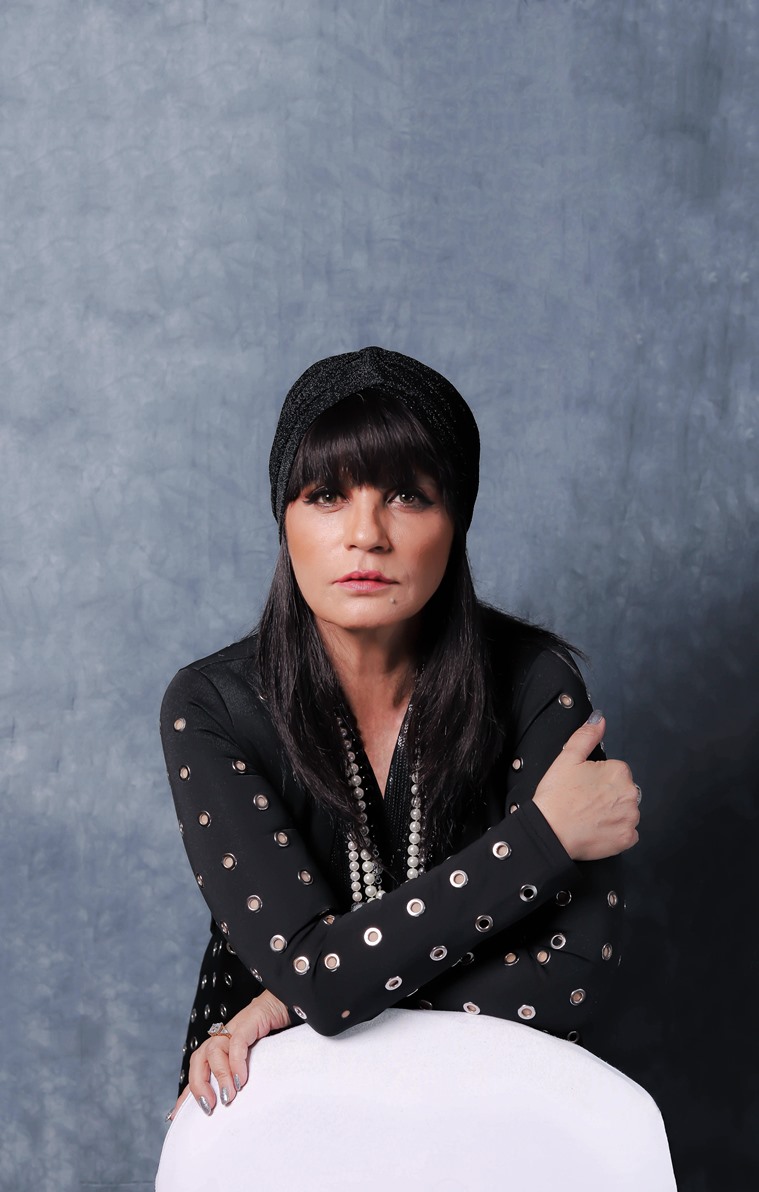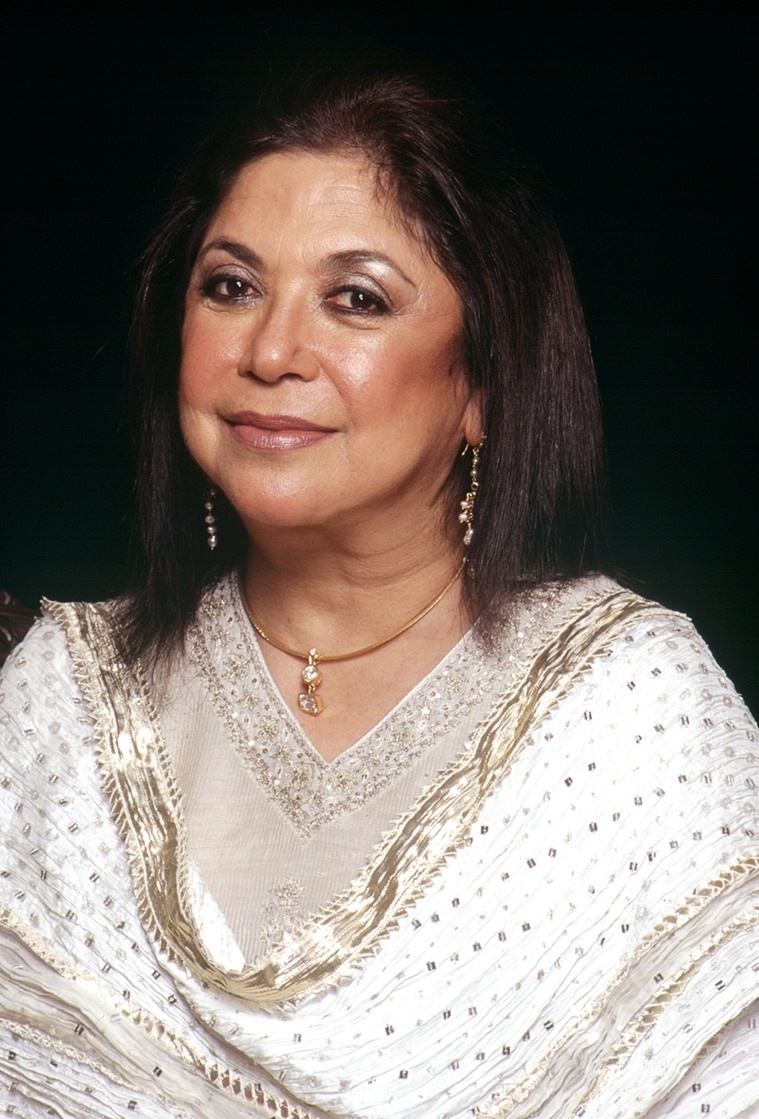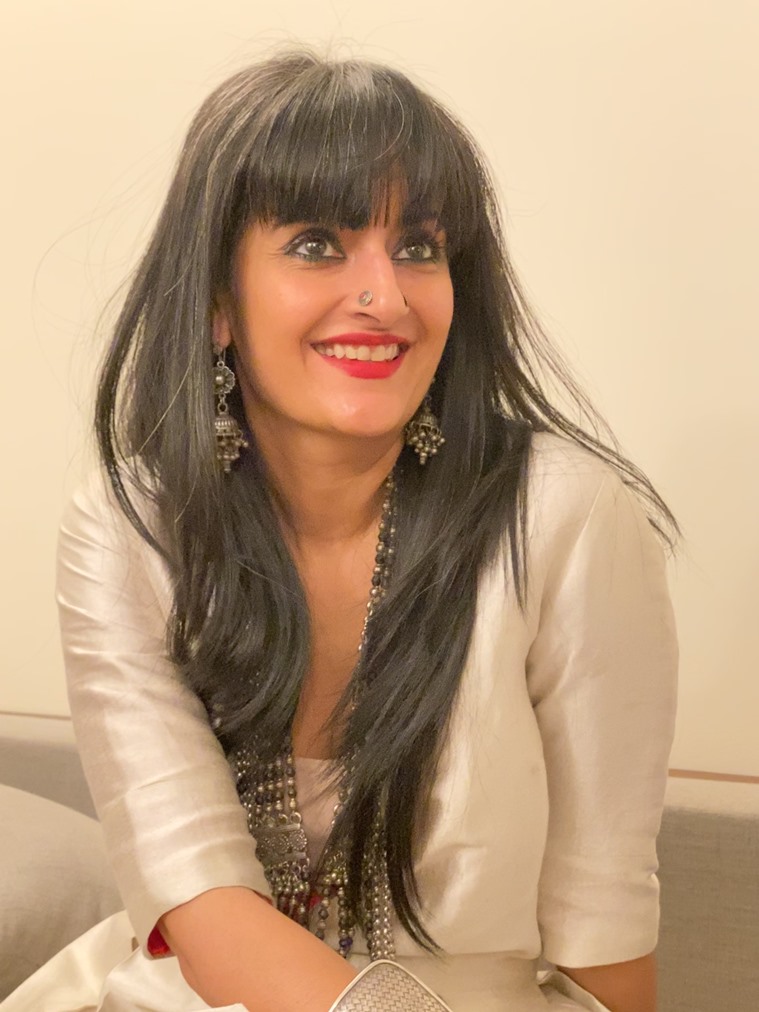 Women who lead, manage and redefine the world of fashion. (Designed by Gargi Singh)
Women who lead, manage and redefine the world of fashion. (Designed by Gargi Singh)
They said being a woman is never going to be easy, but we can say it’s worth every moment, when it comes to these three ace designers who have pioneered the world of fashion and redefined it. This Women’s Day, interviews these celebrated designers — Ritu Kumar, Neeta Lulla and Payal Khandwala — as they talk about the dynamics of the fashion world, how they carved their place, and offer advice for those who are on the starting line.
Neeta Lulla
 Neeta Lulla firmly believes that in a world where we women consider ourselves equal to men and work shoulder to shoulder, resistance is not a word to be considered.
Neeta Lulla firmly believes that in a world where we women consider ourselves equal to men and work shoulder to shoulder, resistance is not a word to be considered.
How different are things compared to when you started out?
From the few biannual international magazines on the stands in the ’80s, for the first time in the 90s, film magazines mentioned clothes and fashion as aspirational and so did mainstream lifestyles magazines, during my work in Hum Dil De Chuke Sanam. Media had finally started to take note of fashion trends.
This is when I learnt that fashion in films was a major gamechanger and inspiration for the consumer. But it also saw a great divide between film costume designers and mainstream fashion designers. The crossover for either seemed difficult, film fashion was considered garish for a long time, but secretly was still an aspiration. Clients would come for a consult stating they didn’t anything “filmy” and as the conversation proceeded, they expressed a desire for an off-shoulder like Juhi’s from Darr or Sridevi’s from Chandi or Lamhe!
Today, the line between mainstream and films is diffused. We owe it to the digital world and films showcasing a new culture and realism and, most importantly, consumers easy access to international and Indian brands, besides being updated on trends through various digital portals. Today, a confident bride walks into a fashion house with the image of her favourite outfit asking for the exact same thing in her desired colour.
How have organisational structures changed for a decade for women and working mothers?
Complex social movements have contributed to a change known as the feminist movement, equal opportunities, expansion of the service sector and the knowledge economy, the ever-increasing cost of living and increased access to education. The strides that have been made are surely positive, but as with everything, the situation is complex. Although pay gaps are narrowing, income inequality is still an unacceptable fact of life. The skills and expertise of women are at par and as essential to economic recovery and growth as men; optimising women’s productivity, creativity and energy is a winning situation for enterprises or organisations.
Do you experience resistance when leading men in the industry?
In a world where we women consider ourselves equal to men and work shoulder to shoulder, resistance is not a word to be considered. When you are strong at your technique and knowledge and have good leadership skills and ability to multi-task, you are consistently surpassing all resistance.
Any women who have inspired you and continue to do so?
I have always admired Frida; she is my inspiration. I love how she never gave up on herself or her art. In spite of being so helpless because of her circumstances and medical conditions, she was up for anything and everything. She loved life.
What advice would you like to give to women trying to break into the field of fashion?
There is no limit or age for learning; it’s also not about thinking out of the box, it’s about having no box to your creativity and imaginations, but beautifully compensating it with technique, craft and organisational skills.
Ritu Kumar
 “Two women that have been a source of inspiration over the years, are Kamla Devi Chattopadhyay and Pupul Jayakar,” says the ace designer.
“Two women that have been a source of inspiration over the years, are Kamla Devi Chattopadhyay and Pupul Jayakar,” says the ace designer.
You have come a long way. How different are things today, compared to when you started out?
Over the years, there has been ease of facilities and operations. There’s easier access to textiles from different regions.
How was the organisational structure a decade back for women or working mothers?
There will be a perpetual difficulty for women who are willing to work because it’s more about time management rather than a problem of interest.
Do you experience resistance when leading men in the industry?
I haven’t really experienced any sort of resistance in the industry.
Any women who have inspired you?
Two women who have been a source of inspiration over the years are Kamla Devi Chattopadhyay and Pupul Jayakar, the reason being that they were the trailblazers in the field of the revival of Indian crafts.
What advice would you like to give to women trying to break into the field of fashion?
Invest in an amazing variety of traditional fabrics such as Ikat and handlooms; treasure them for years and try to revive them too. Since Indian textiles are so expansive, we must encourage our unique textiles.
Payal Khandwala
 “I find the perception that all women will drop everything else to accommodate the above becomes the biggest barrier,” says the designer.
“I find the perception that all women will drop everything else to accommodate the above becomes the biggest barrier,” says the designer.
You have come a long way in your journey. How different are things today when compared to the time you started out?
The biggest difference is the appetite of the audience to experiment with pret, in an Indian context. When we started there was a bit of a vacuum in this area and now the consumer is more open. It has changed the fashion landscape significantly.
The other big shift is the focus on general responsibility, of manufacturers as well as a real attempt to inculcate a culture of conscious consumption in the buyer as well.
How has the organisational structure changed a decade back for women or for working mothers?
As more women come into leadership roles and with more gender sensitivity training in general and especially towards the needs of working mothers, I do see more flexibility when it comes to timings, maternal leave and overall support.
I’ve never worked in an office, I painted in a studio for a decade and now I’m technically the ‘boss’ so perhaps I’m not best suited to answer this, because the ground reality can be so different. At our organisation though, we keep in mind scheduling for working mothers, because I am one and I can understand the challenges we face!
Do you experience resistance when leading men in the industry?
I think there can be some initial resistance when men are led by women. That said, I have always found that if you treat others with dignity and respect, then gender has little to do with it. In my personal experience if I can bring information and knowledge to the table, then I’m treated as an equal. I’ve been privileged in this regard perhaps because I’m well aware that this friction, unfortunately, does exist.
What do you think is the most significant barrier to female leadership?
Marriage, family, children and what it represents. I find the perception that all women will drop everything else to accommodate the above becomes the biggest barrier. If it’s a choice then it’s non-negotiable of course, but to assume this to be the norm for all us and then hold it against women in leadership roles is entirely unfair and becomes a huge barrier.
Which women have inspired you and continue to do so and why?
My mother, because she has infinite patience and can be so selfless, my daughter because she is a dreamer and lets me see the world through her eyes, Frida Kahlo for her tenacity and talent, Coco Chanel for being so ahead of her time…it’s a long list!
What advice would you like to give to women trying to break into the field of fashion?
Have a point of view, not just because you feel compelled to have an opinion, but because you truly believe in something, an ethos, a philosophy. Suggest something new. It’s not just about making more clothes, but about alternatives that will empower women in the guise of clothing. Once you know what you want to say, don’t be afraid to say it with conviction. Be prepared to work hard but be sincere and always have integrity!